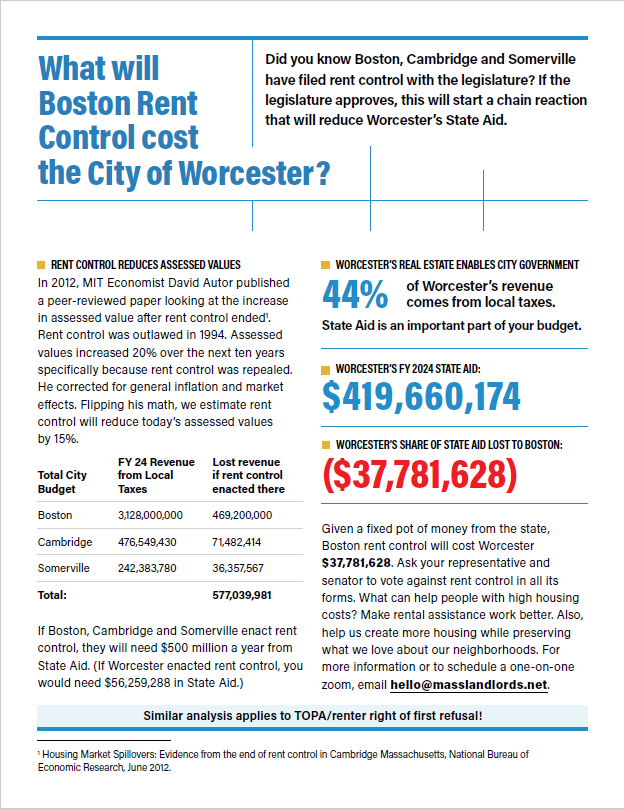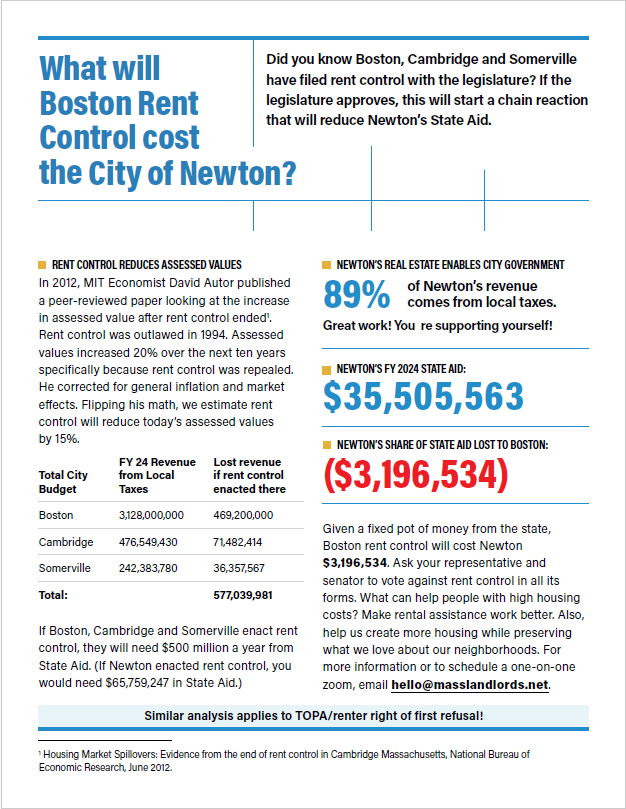Anti-Rent Control and TOPA Flyers Distributed to Select Communities Showing $577 Million Lost from Just Three Towns
| . Posted in News - 0 Comments
The two-year legislative session results in all bills filed that session being discarded.
In late June, MassLandlords notified over 200 local officials how their towns would be impacted by the adoption of rent control or the tenant opportunity to purchase act (TOPA, or right of first refusal) in other towns. For example, we studied what would happen to Worcester if Boston, Cambridge and Somerville enacted rent control or TOPA. We estimated a $577 million reduction in local tax revenue in Boston, Cambridge and Somerville that resulted in a 9% reduction in state aid to Worcester.

This flyer was shared with Worcester city councilors. Public Domain.
This math follows from peer-reviewed economic analysis of the end of rent control. In essence, rent control dramatically reduced assessed values. This effect "spilled over" onto even uncontrolled properties.
The spillover effects in the paper were local, but when we layer in Massachusetts state aid, we can see statewide impact. Any town that adopts a policy of curtailing their local real estate market, like Boston, Cambridge or Somerville, will suffer greatly reduced local tax revenue over time. Given a fixed pot of money for state aid, a sharp reduction in one town's tax revenue will result in all other towns getting less state aid.
Said another way, if Boston, Cambridge and Somerville are allowed to shoot their market in the foot, then:
- Their real estate tax revenue will fall,
- Their share of state aid will increase, and
- There will be less state aid for all other towns.
It's too bad Massachusetts doesn't have a state equivalent to the federal Office of Management and Budget. If we did, surely these capable public servants could calculate the cost of rent control or TOPA better than we can. Absent professional attention, we did our best to estimate the costs.

This flyer was shared with Newton city councilors. Public Domain.
The towns mailed were Brockton, Fall River, Lawrence, Lowell, Lynn, New Bedford, Newton, Worcester, Quincy and Springfield. The officials mailed were all city or town selectpersons or councilors, as well as all state representatives and senators whose districts touched the town. These towns accounted for roughly half of the total loss of state aid resulting from Boston, Somerville and Cambridge enacting either rent control or TOPA. Other towns not mailed would be likewise impacted.
Is this a glaring problem in advocacy for TOPA or rent control? Or have we misunderstood municipal funding? Tell us what you think by emailing hello@masslandlords.net.
Join as a member.





